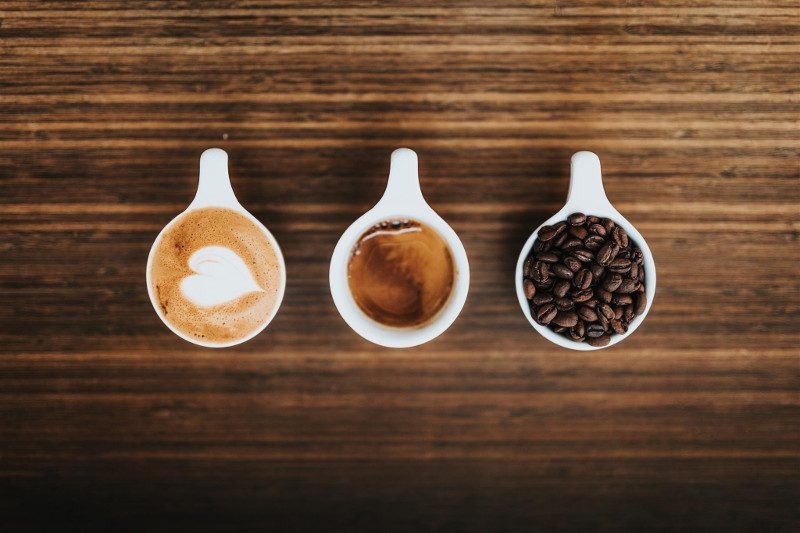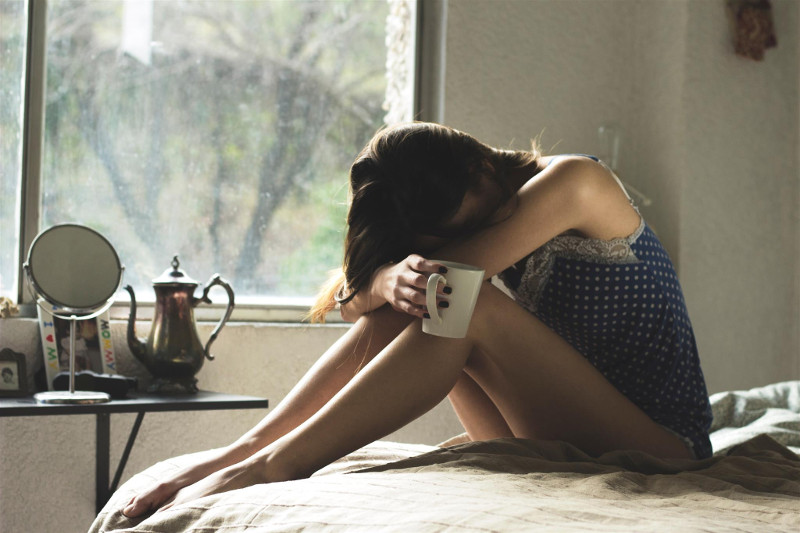Ever wake up feeling sluggish and barely roll yourself out of bed? You feel it’s way too early for your brain to function properly? Luckily there’s one magic potion that can perk you up and bring you back to life: A cup of coffee.
Coffee really is magical. It improves your mood, temporarily speeds up your metabolism and at least from some times, it boosts your physical and mental performance. But too much of a good thing can be bad, and coffee is no exception.
How can you know if you drink too much?
I’ve put together nine signs that you’re consuming too much coffee and what health ricks this can bring about.
About 50% of all Americans admit that they’re loyal coffee drinkers. According to statistics, the average coffee drinker has 3 cups a day. Every single day approximately 30 million Americans order specialty drinks like: lattes, cappuccinos, mochas, iced coffee and so on.
It’s all fine and great if you know where to draw the line, but unfortunately many people have no idea how much is too much.
It’s not as easy as you think. Since each person has their own unique coffee tolerance. How much caffeine you can take in without experiencing any negative effects of over-consumption depends on your genes and personal coffee drinking habits.
However, even if the amount depends on the individual, anybody can reach a point of having too much caffeine in their system. Here are 9 signals that your body isn’t dealing too well with all the coffee you give it each day.
1. Insomnia
Coffee is supposed to wake you up, that is its job after all, but most people drink coffee so that they don’t fall asleep at the most inappropriate time, like during that super important meeting with a boss, or that class with the strictest professor in the building.
However, too much coffee can make it impossible for you to fall asleep when you actually want to. That is at night.
Not only does it increase the amount of time it takes you to fall asleep, it also decreases the duration and the quality of your sleep. Coffee will have this sort of negative influence on your sleep pattern, but only if you consume a lot of it. If you drink just one or even three small cups of coffee a day, your sleep won’t be affected. But again, it depends on your genetics and caffeine tolerance.
2. Anxiety
Caffeine not only increases blood pressure and heart rate, but also stress hormones, like epinephrine and cortisol. That’s why if you’re sensitive to caffeine, even a small cup of coffee can make you feel anxious. On top of that, caffeine usually speeds up the central nervous system, which explains that jittery jumpy sensation you may get.
Unfortunately, even if you decide to give up coffee for good, this coffee induced anxiety won’t go away overnight. In fact it’ll probably get worse because of caffeine withdrawal. You’ll feel agitated and anxious because your body has already become physiologically as well as mentally dependent on the substance. Being totally deprived of coffee isn’t always a good idea.
3. Stomach ache
Coffee may result in stomach aches similar to the kind you get after eating really bad food. Researchers from Europe have figured out that coffee contains some compounds that stimulate the production of stomach acid. Some over-the-counter medicines can help alleviate the pain and neutralize this acid, but this solution is rather short term.

If you feel that your stomach isn’t getting any better and suspect coffee is the cause, you probably need to consider changing you coffee drinking habits.
4. Bowel problems
Coffee affects your bowel in extreme ways. Your body’s reaction is to run to the bathroom, this is due to coffees laxative properties.
If you drink too much, you even increase chances of getting diarrhea. On the other hand, daily consumption of coffee can also dehydrates you. This in turn can lead to constipation. Whatever end of the spectrum you’re on, if your bathroom troubles are having a negative impact on your quality of life, you might want to gradually start withdrawing from caffeine.
5. Racing heart
The simulator effect caffeine has on your system can cause your heart to beat faster right after you have your cup of joy. If you drink too much this can also lead to atrial fibrillation, or in other words an irregular or rapid heart rate. This condition can make you feel short of breath and weak. Not to mention it’s downright terrifying when you feel the palpitations in your heart.
Luckily this problem doesn’t affect all people. Again, a lot depends on your caffeine tolerance. Sometimes, even people who have heart problems can consume large doses of coffee without experiencing negative effects.
In a controlled study on patients with heart failure, they were given 100mg of caffeine every hour for 5 hours. Surprisingly their heart rhythm and heart rate remained unchanged. In any case, if after drinking a cup of strong coffee you don’t like how it makes your heart feel, it may be a good idea to cut down on your caffeine consumption.
6. Headaches
Caffeine actually shrinks the blood vessels in your brain, which significantly slows down the blood flow there. In fact, a 2009 study, published in the scientific journal Human Brain Mapping showed that two small cups of coffee can reduce blood flow in the brain by 27%!

So let’s see what would happen if you decided to cut dawn on the amount of coffee you drink.
Your blood vessels are used to their coffee induced and narrowed state, but when you start to give your system less coffee, those vessels will open up increasing the flow of oxygen-rich blood to your brain and that’s a good thing. At the same time this process will lead to a sudden change in blood pressure, resulting in headaches. Their severity and duration will change depending on how fast your brain can adapt to the increased blood flow.
7. Tiredness
Wait, what? Isn’t the whole idea of coffee to make you NOT feel tired? Yes, caffeine does help you to stay alert and bouncy. It does that by blocking receptors for adenosine, which is a neurotransmitter that makes you drowsy, but it is a double-edged sword.
First, the energizing effect coffee gives you usually last no more than 5 to 6 hours. So if you wanna stay bubbly all day, you need to drink at last a couple cups of coffee. In other words, coffee is a natural stimulant, but when that “high” wears off, you come crashing down and feeling groggy and exhausted.
In one study, a bunch of people who drank coffee on a daily basis had to avoid caffeine for 16 hours. All of them reported an ever-increasing feeling of fatigue.
8. Feeling depressed
Any experienced coffee drinker will confirm that coffee elevates their mood. That’s thanks to coffees ability to block adenosine. Remember, this increases your alertness and makes you feel better.
Everything’s fine until something prevents you from getting your usual dose. When you’re suddenly deprived of caffeine, your mood can plummet to the brink of depression. If missing out on one cup of coffee makes you feel down in the dumps, you might have a caffeine addiction that you really need to re-consider.
9. Irritability
Regular coffee drinkers can be pretty cranky before they get their first cup in the morning. So are they all just naturally mean people? Of course not! The culprit is most likely caffeine. You already know that the energizing effect that coffee provides lasts for about 6 hours. So unless you’re getting up in the middle of the night for a fix, you’ll probably feel the symptoms of withdraw in the morning after a whole night without coffee.
For some people, their attempts to wean off caffeinated drinks all just lead to moodiness and irritability.
A study involving some adults who were dependent on coffee found that 89% of them had tried several times to give up caffeine, all to no avail. With every time attempt they made to kick their coffee addiction, they just ended up becoming angry and irritated.
